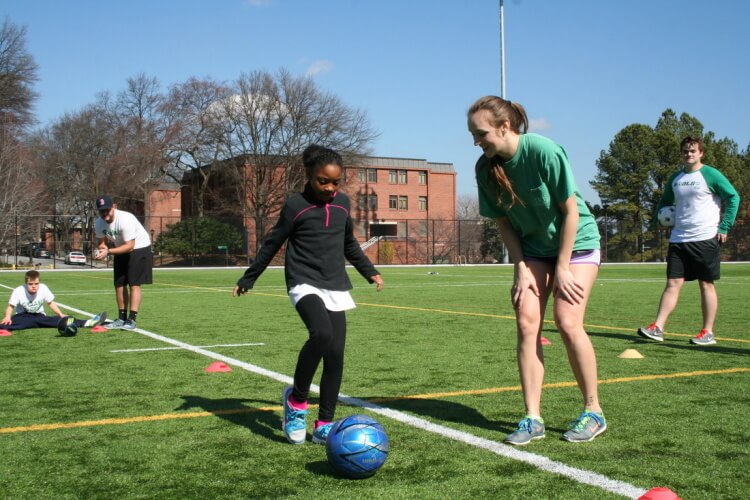
Regular or adapted physical education teachers, physical therapists, and occupational therapists could all use Special Olympic (SO) lead-up skills as objectives for children with disabilities IEPs. Linking movement skills to Special Olympics offers the following benefits:
(a) extends teacher instructional knowledge toward teaching sports to children with disabilities;
(b) links skills to functional activities;
(c) helps develop basic skills for more successful participation and inclusion in team sports;
(d) SO offers life-long sports opportunities. By law ISDs must make a plan and IEP objectives will help prepare children with disabilities for life after school that includes recreation. Adapted PE, PE, PT, and OT starting at age 12 to graduation (21 years old need) must prepare them for continued physical activities;
(e) SO competition offers a chance to highlight the athlete’s achievements to friends, family, teachers, and volunteers; and
(f) the SO event (opening ceremony, competition, awards, food, dance) is a great avenue for everyone involved to congregate in a fun way, express joy, love, and care toward each other as we celebrate with the athletes.
The Individual Skills Competition (ISC) events for various sports, allow the athlete to practice important fundamental skills that ultimately lead up to organized sporting events. In the complete document attached to this introduction that you are invited to download, we share our experience having presented 10 sports each having several lead-up skills to perform. We have shared several Individual Education Program (IEP) objectives for each sport. Note that, some of the IEP objectives are lead-up components to the ISC, meaning that some SO athletes cannot perform all the skills needed to finish the event. For example, in swimming, athletes are expected to swim a distance of 15 meters. But perhaps we have a student, “Jo” who has Cerebral Palsy and can only swim 10 meters before getting fatigued and unable to finish the race. In this case, Jo’s objective might be to increase his distance by perhaps 20%, 2 out of 3 times. Jo is then working toward finishing the race. Every athlete will have unique abilities and the IEP objectives should reflect where progress and improvement is needed and can realistically be achieved.
We hope this information motivates you to get involved with Special Olympics and set IEP objectives for life-long athletic enjoyment for people with disabilities.
Good luck and see you at the games. Click here to download the program.
